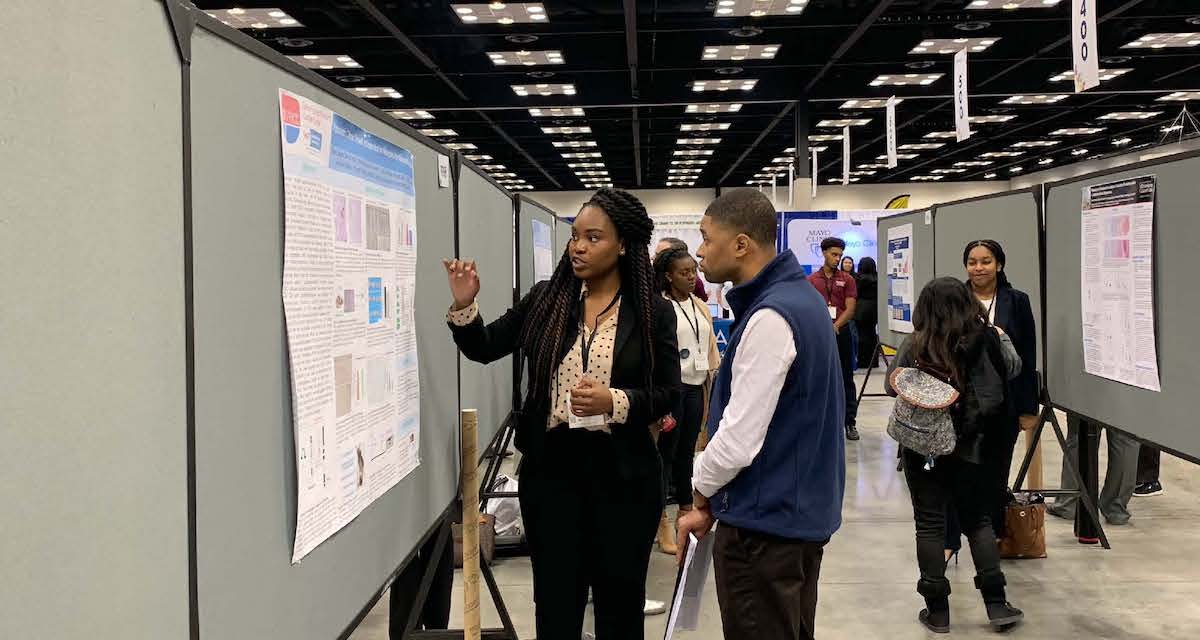From the World’s Deadliest Earthquake to the World’s Deadliest Cancer
Orlane Destin ’21 says that growing cancer cells for research is like taking care of a baby. You must feed them, make sure they are comfortable, and put them into larger Petri dishes when they outgrow their old ones.
Working as a summer research intern for the Dana Farber Cancer Institute and Boston Children’s Hospital last summer, Destin grew thousands of cancer cells to observe the cells’ metastasis to the liver and then test how a specific medication impacted their growth. In the process, her team discovered a way to slow down and, in some cases, prevent the metastasis of one the world’s deadliest cancers: pancreatic cancer.
In November, Destin presented her research findings in Indiana at the Annual Biomedical Research Conference for Minority Students, and she will be presenting again at the Experimental Biology Conference in Florida this spring.
While Destin’s research progress is hopeful and inspiring, her interest in medicine came from more somber beginnings. In January of 2010, she was living in Port Au Prince, Haiti with her family when the seven-magnitude earthquake ripped through her country.
Destin lost her older sister in the earthquake. To protect Destin and her two brothers from further heartbreak—and the devastation just beyond their front door—her parents kept them inside the house for a month until her family received the green light to immigrate to the United States. To get to the U.S., they first had to leave the protection of their home and make their way through post-earthquake Haiti. What Destin remembers from that journey were the bodies on the ground and neighbors walking around with open wounds. There were no doctors nor medical teams in sight. It was then Destin decided—at 10 years old—that she wanted to be a doctor.
Destin’s call to study medicine intensified three years later when she lost her mother to breastcancer. As a high-school student, she enrolled in Harvard Medical School’s Health Professions Recruitment and Exposure Program (HPREP). And in the spring of 2018, her mentor from Harvard Medical School encouraged her to apply for the Continuing Umbrella Research Experience at Dana-Farber.
“Having watched my mom go through cancer, I had to channel my anger,” says Destin. “So, I channeled it by doing cancer research. Eventually, I want to start a foundation in her name that provides long-term, pro bono care to people who can’t afford medical care.”
Destin isn’t the only one in her family who found a home in medicine. Right now, her dad is in school to become a nurse. After losing his daughter and wife and immigrating to a country where his law and literature credentials don’t transfer, he’s found another field he loves. And it’s allowing him to enjoy more time with Destin.
“I’m so proud of my dad,” she says. “It’s almost like I’m walking through everything with him. Even though we’re studying at different schools, we’re taking some of the same classes. I get to do homework with him. He’s gone through so much and has come out on top every time. I’ve told myself, ‘if my dad can do it so can I.’”
 The Bell
The Bell